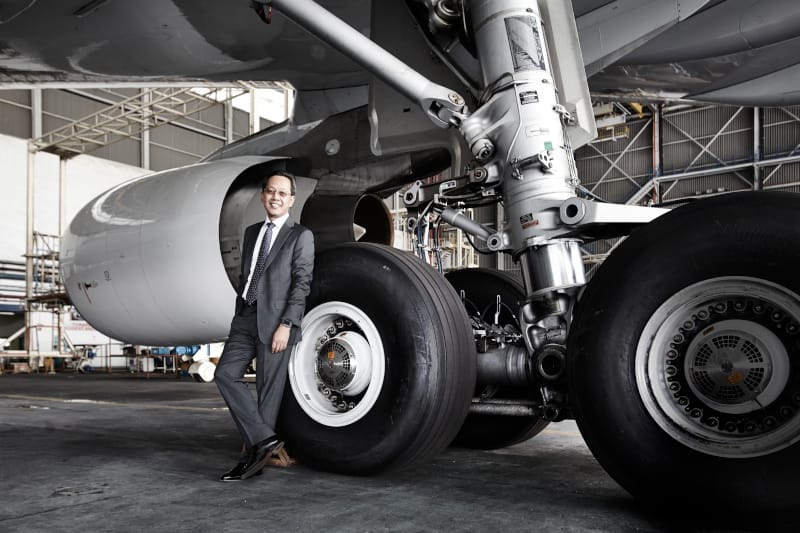Looking back, what do you consider the defining moments in your first 100 days in this position?
I was apprehensive, in the beginning, about taking on this daunting task. However, there was a point when I realised there was no reason to be afraid because I have a strong team who are as determined as I am to make the company a success. Everywhere I went, I was reassured of their support and it gave me the confidence to be frank about the company’s situation and challenges, and how I needed them to get out of their comfort zone and work harder in ensuring we achieve our goal of becoming profitable. I also landed on my number one purpose, which was to champion the welfare and growth of my people, besides, of course, taking our customer experience to another level while driving revenue for the company.
What do you regard as the crucial factors for you to stay on top of your game?
There are too many to mention. It’s a bit like the airline industry – so many moving parts that it would be hard to just single out a few. I would say agility is extremely important – the ability to react quickly to any surprises while remaining focused on the job at hand. The airline business is extremely challenging: launching one flight, for example, involves more than a thousand processes and any breakage in between can be really costly and cause unnecessary strains on the business. It’s important to stay focused but also be aware of the many issues that may crop up in order to respond quickly. Or to use a pilot analogy, situational awareness is crucial to remaining on top of things.
What do you foresee are the game-changing challenges facing your industry?
Manpower! The aviation industry is a key driver of global economic and social development. Asia-Pacific airlines alone are at the forefront of global air transport development and account for 40 per cent of new aircraft deliveries, equivalent to 16,930 airplanes from 2018 to 2037. Alongside this, the industry needs to attract, train and develop skilled manpower to meet future growth demand of 839,000 pilots, technicians and cabin crew during this period. All parties involved, including the government and private sector, have to join forces with airlines for the corresponding infrastructure and manpower requirement.
Single out a leader in the corporate world you wish to emulate and share with us why.
There is no one particular person but I have always admired the Disney style of management, where the customer lies at the heart of everything. It is precisely this ethos that has managed to keep Disney relevant through the decades, despite the competition and many disruptors in the industry. Whatever we do in Malaysia Airlines, I always remind the team to keep our guests at the top of our minds. That’s how many great companies fail – when they lose sight of the customer.
As CEO, what most excites and worries you?
I am always excited to introduce new innovations that will make our guests’ journeys more seamless and memorable, while at the same time positioning the national airline as a reliable and brand to be proud of. As a leader of an organisation, I am always looking at ways to motivate my staff too as I know they work really hard in this very fast-paced industry, especially in running a 24/7 operations. What worries me is staff motivation, especially at this point, when we need everyone to rally and push through.
What are your strategies to propel Malaysia Airlines to be the leading player in the aviation industry in Asia?Â
Focusing on the customer and making sure we deliver a strong schedule and great service. Building a diverse AsiaPacific network with a simplified fleet structure and operations to ensure consistency and removing complexity from service delivery. Taking a gradual yet progressive growth strategy across markets. We also reintroduced Malaysian Hospitality as our brand promise. It is most fitting as we are the national carrier and we represent, worldwide, the warmth and hospitality that Malaysia is famous for.
Why is trust considered a powerful currency of the CEO?
Trust attracts loyalty and commitment, which then fosters teamwork that will deliver results. When your work family trust each other, they will work harder for you and the company.
It is said that CEOs are lonely at the top. What do you think a CEO must do to overcome this loneliness?
I believe in always making time for the important things and people in my life. My weekends are devoted to family, who always have my back. I especially love spending time with my grandkids, who keep me grounded and remind me of the bigger picture. Of course, there is always time for a game or two of golf, which is when I get to recharge and catch up with my closest friends. I think these are the things that keep me sane and connected in an otherwise hectic world.
aircraft



